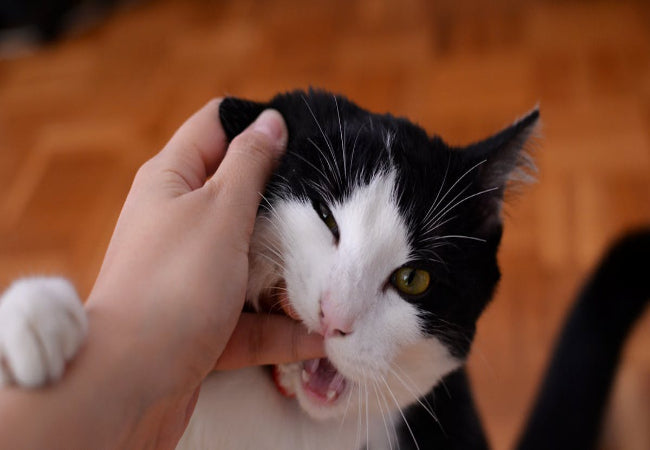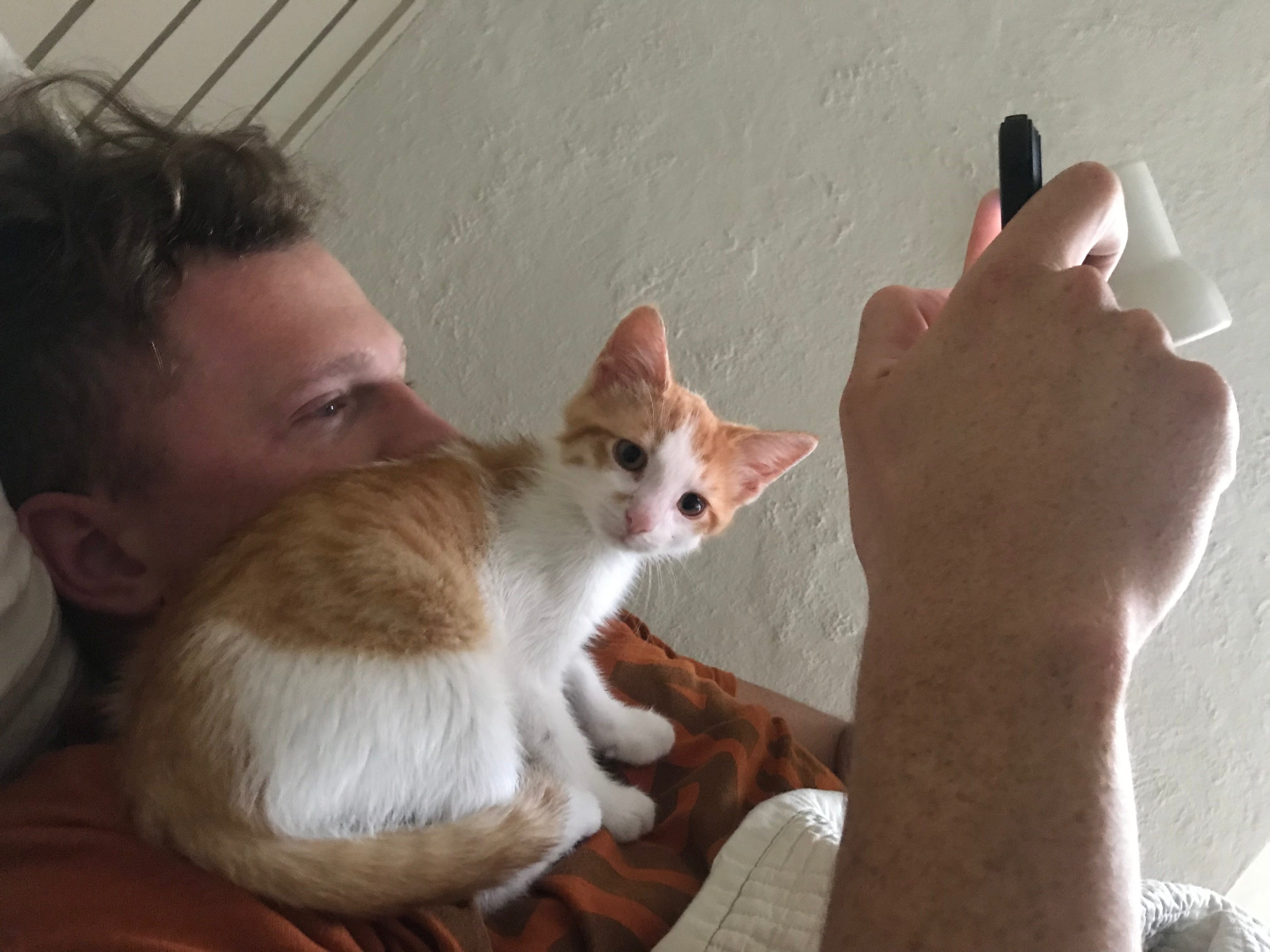Teach Your Cat to Stop Biting 2025: Vet-Approved Tips 🐱✋

In this article
Teach Your Cat to Stop Biting 2025: Vet-Approved Tips 🐱✋
By Dr. Duncan Houston BVSc
Cats bite for many reasons — playfulness, fear, dominance, or even illness. Understanding why your cat bites is the first step in addressing the behavior effectively. With patience, consistency, and positive reinforcement, you can help your cat learn appropriate ways to interact.
1. Determine the Cause of Biting
Understanding the root cause is essential:
-
Play biting – Often happens during energetic play.
-
Fear or aggression – Can be a reaction to stress or feeling threatened.
-
Illness or pain – Sudden biting may indicate discomfort.
If your cat bites out of fear, aggression, or pain, consult a veterinarian or professional cat behaviorist for guidance.
2. Redirect Playful Biting
If biting occurs during play:
-
Offer toys such as wand toys, balls, or stuffed animals to bite.
-
Stop playtime whenever your cat bites to teach boundaries.
-
Encourage gentle interaction with consistent redirection.
3. Teach a “Gentle Play” Command
When your cat bites:
-
Say a firm “no” and immediately stop playing.
-
This helps your cat associate biting with a negative outcome, encouraging gentler behavior over time.
4. Don’t Use Your Hands as Toys
Avoid using your hands to play:
-
Hands are not toys, and using them can confuse your cat.
-
Use appropriate toys to differentiate between play objects and people.
5. Use Positive Reinforcement
Reward good behavior to reinforce learning:
-
Treats, praise, or extra petting when your cat plays without biting.
-
Cats learn faster when positive behaviors are rewarded consistently.
6. Consider Clicker Training
Clicker training is a great way to shape behavior:
-
Click and treat when your cat behaves appropriately.
-
Over time, your cat will associate the click with positive behavior and rewards.
7. Consult a Veterinarian
Sudden or unusual biting may signal a medical problem:
-
Pain, dental issues, or other illnesses can cause aggressive or irritable behavior.
-
Always rule out health concerns first.
8. Seek Professional Help if Needed
For aggressive or fear-based biting:
-
A professional cat behaviorist can provide personalized strategies.
-
They can help address deep-rooted behavior problems safely.
🐾 Final Tips
-
Be patient — behavior changes take time.
-
Avoid physical punishment — it can worsen the problem.
-
Consistency, redirection, and positive reinforcement are key to success.
With the right approach, your cat can learn to play and interact without biting, strengthening your bond and making your home safer and happier.








